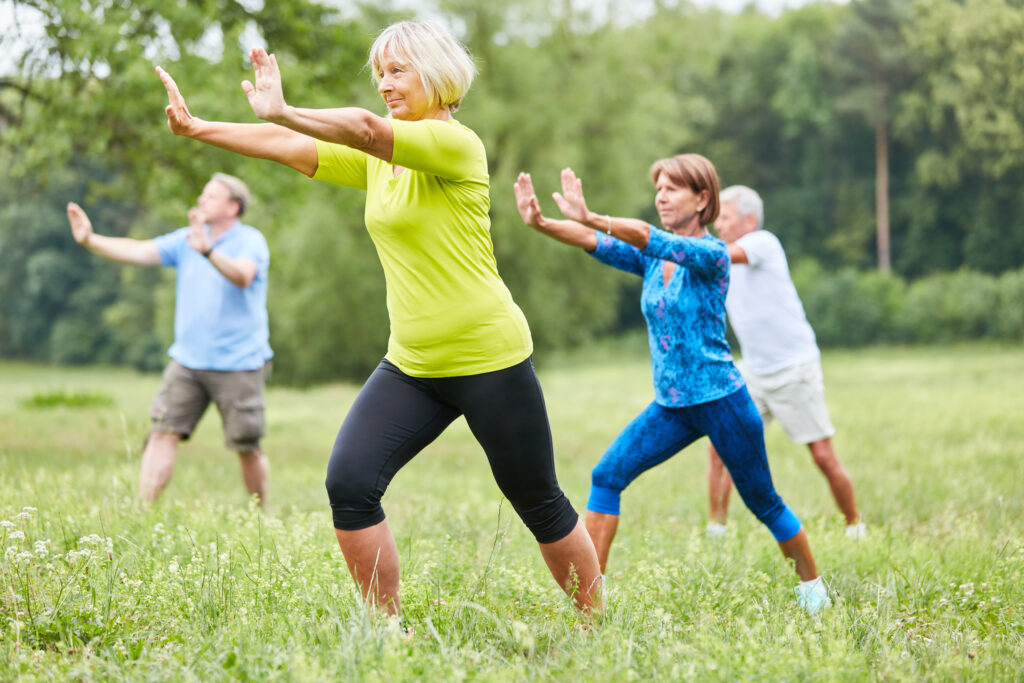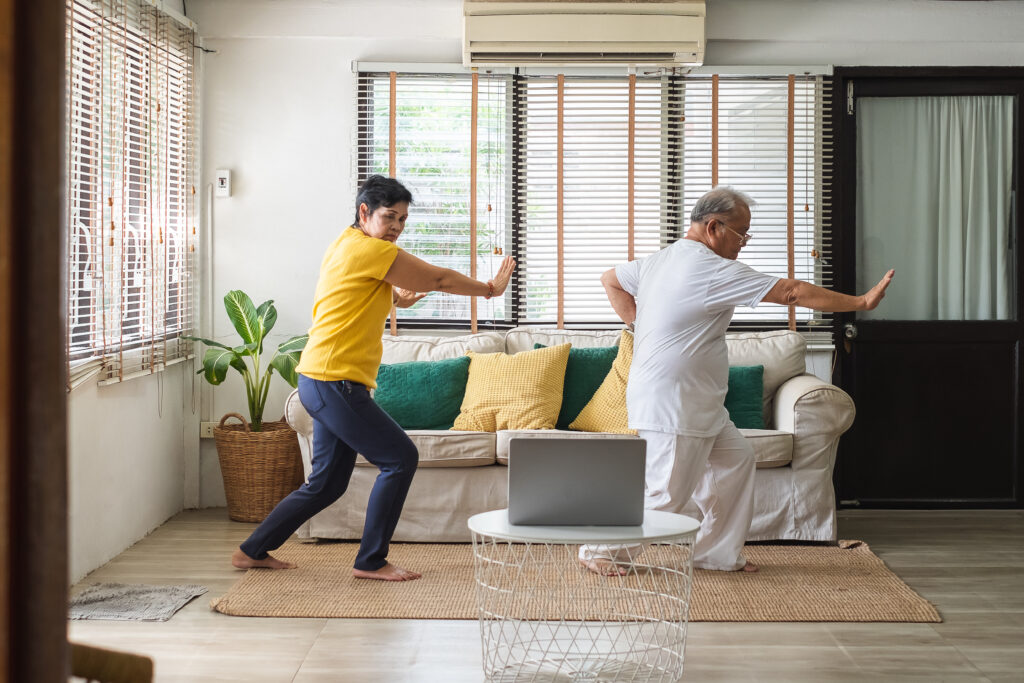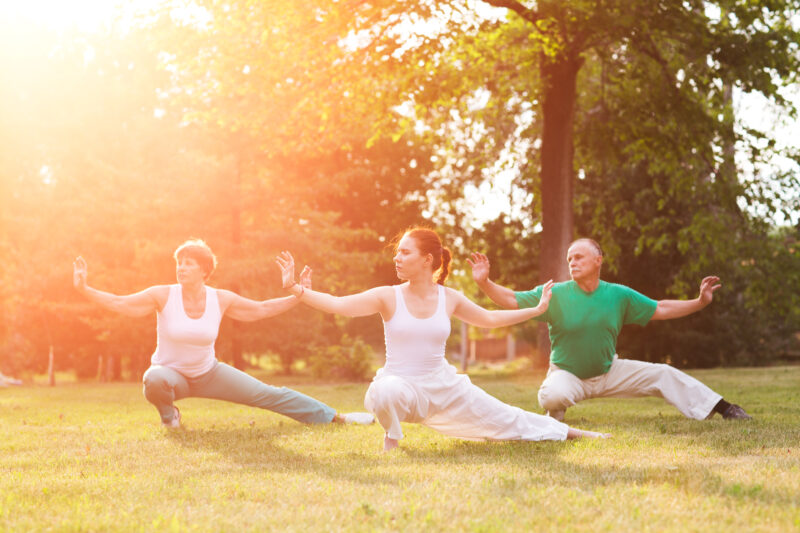What is tai chi?
Tai chi chuan, also known as tai chi, is an ancient Chinese form of exercise practiced at a slow speed through deliberate poses based on softness and awareness. The gentle movements have been proven to calm emotions, boost immunity, and help with focus and agility, all of which help seniors improve their balance and stability and maintain a sense of control of their bodies.
A combination of low-impact and slow-motion actions, tai chi is a form of meditation, focusing on the sensations in your body as you progress through the movements. Not only is tai chi easy to learn, but it can be an effective method to improve the health of older adults throughout their lives.

How can tai chi help with balance and stability?
Falls are one of the most significant hazards for older adults, and the fear of falling keeps seniors from doing many daily activities, which can be detrimental to their quality of life.
According to the Centers for Disease Control and Prevention (CDC), one-third of all adults over 65 experience a fall every year, and 20% of those falls cause serious injuries, including broken bones or head injuries. Those injuries lead to countless hospitalizations, including surgery and rehabilitation, which cost the United States $38 billion in Medicare and Medicaid each year, as well as $12 billion in private or out-of-pocket expenses.
While some falls occur because of vision issues or trip hazards in the home, many happen simply because of a loss of balance. Research has shown that tai chi is a useful tool to help older adults avoid falls by increasing their stability and balance confidence. The practice enables them to build muscle strength and develop skills to maintain a calm and relaxed energy.
This can, in turn, drastically improve an older adult’s sense of balance and thereby reduce the risk of falling.
A recent study in the Journal of Exercise Rehabilitation showed that after only eight weeks of tai chi, the participants reported a significantly lower fear of falling and better balance than the general population in the same age group.
Another study from the Journal of the American Geriatrics Society found that tai chi practice can reduce the fall rate of seniors by 43% and the injury rate to seniors by 50%.
And for those with Parkinson’s disease who struggle with balance and muscle control, a study published in the New England Journal of Medicine showed that tai chi was more effective in preventing falls among patients with mild to moderate disease than either resistance training or stretching.
Medical experts practice and recommend tai chi
Peter M. Wayne, associate professor of medicine at Harvard Medical School, has spent 40 years practicing tai chi and has studied its effects on the health and well-being of those who practice it. “Across multiple studies, tai chi appears to reduce risk of falling by 20% to 45% and is considered one of the best exercises available for ambulatory older adults with balance concerns,” he said.
Jan Diepersloot, a San Francisco area tai chi instructor and author, has also seen the benefits firsthand: “Most people who do tai chi never have to stop. Even if their movement becomes impaired, they still have the knowledge of working with their breath and principles of tai chi relaxation and exertion to facilitate and extend their abilities.”
The ability to continue to practice tai chi even as they grow older enables seniors to maintain their balance skills, allowing them to remain up and moving for as long as possible.

How to get started with tai chi
Tai chi has grown in popularity among older adults not only for balance improvement but for mental health and overall well-being, too.
If your older family member lives in a senior adult community, chances are tai chi classes are offered for residents. If you need to find a tai chi class for home, you can find classes on YouTube for at-home exercise or check with the Tai Chi Foundation to find a class near you.

